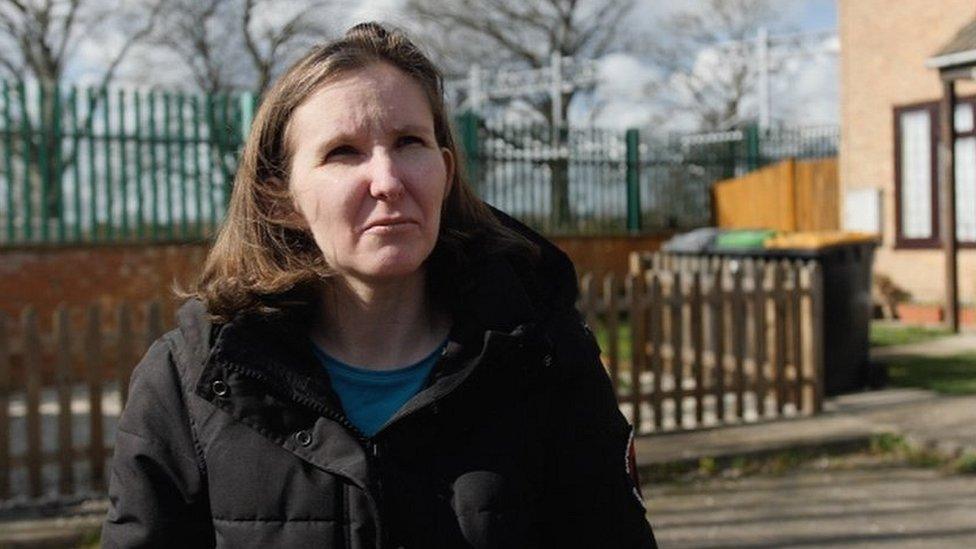East West Rail: Campaigners fear rare species will be lost forever
- Published
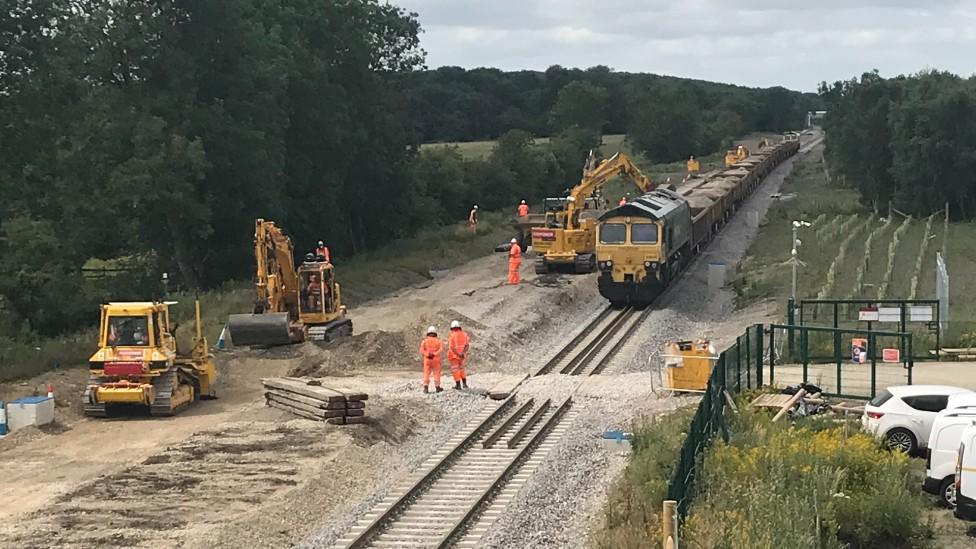
East West Rail is currently under construction in a number of areas
Cutting a new railway line through the Bedfordshire and Cambridgeshire countryside could see many rare species disappear from the area, according to local campaigners. How has the team behind East West Rail (EWR) mitigated against the environmental impact of the scheme?
Last month, the East West Rail (EWR) project confirmed the route the section between Bedford and Cambridge will take.
A spokesman for the £5bn railway line between Cambridge and Oxford said the chosen route would offer an "environmentally sustainable solution".
But campaigners say the scheme could see Red List species, external, such as skylarks and yellowhammers, leave the area altogether if their habitats are disturbed.
The RSPB also called on EWR, external to "demonstrate the highest levels of nature-friendly design.. and native planting to minimise the barrier effect of the scheme to the movement of wildlife through the landscape and maximise the benefits of newly created and restored wildlife habitats".

'Wildlife corridors would be disrupted'
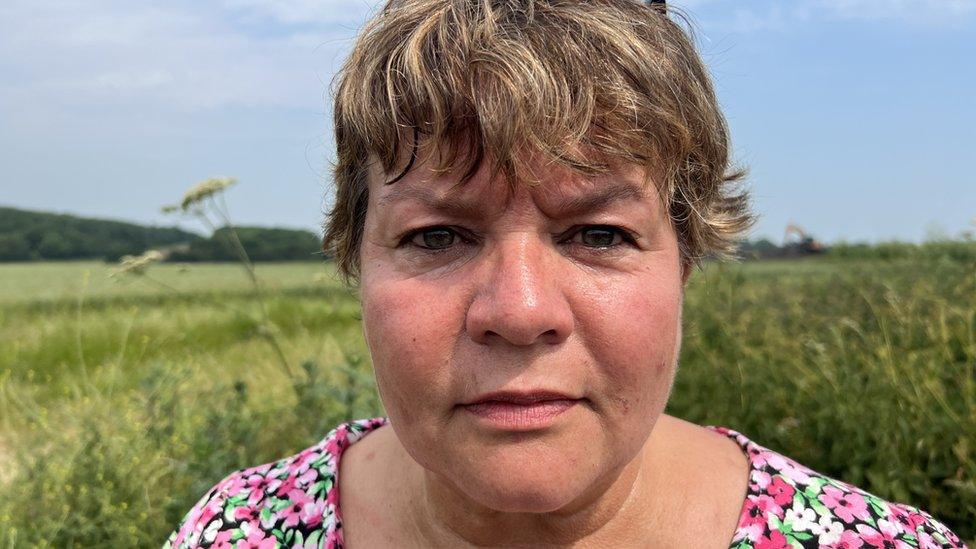
Nicola Gribble of the BFARE campaign, which is fighting against the chosen route of the EWR Bedford to Cambridge link
Nicola Gribble chairs Renhold Parish Council and is a member of BFARE, external, a consortium of affected parishes along the Bedford to Cambridge route of EWR.
The campaign aims to "influence the government, Bedford Borough Council and East West Rail to reconsider this environmentally destructive route".
"My main concern, from a local point of view, is the destruction of the countryside," she says.
"This is an ancient woodland and a county wildlife site, which would be dramatically impacted if the route goes ahead.
"It's a bluebell wood - the local wildlife corridors would be disrupted. Once they've gone, they've gone - these animals don't come back."
In particular, she says, birds on the RSPB Red List, such as the ground-nesting skylark, are "really at risk through habitat destruction and encroachment".
She says EWR is "paying lip service" and that a flatter, shorter route suggested by BFARE has been "disregarded".
"I would like to see our experts meet their experts and have a free and frank discussion," she says.
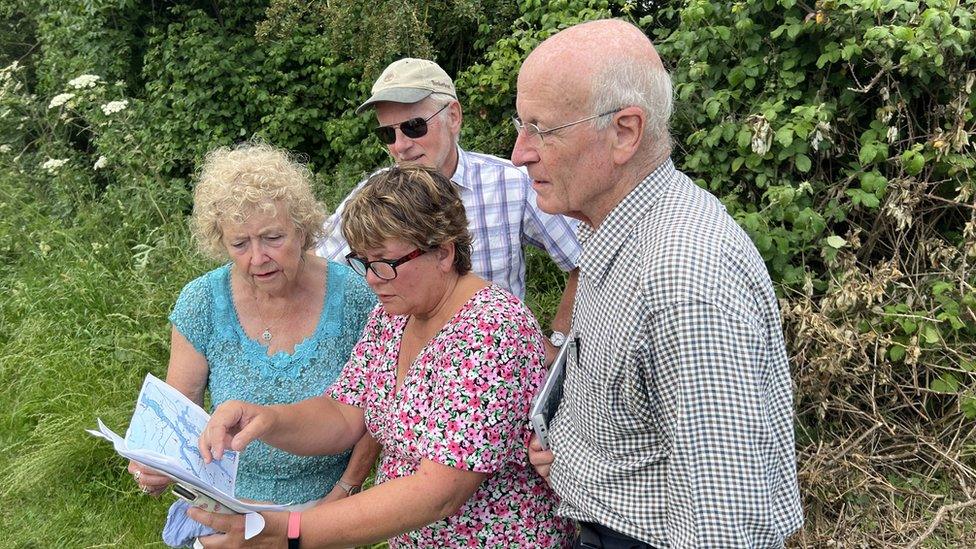
BFARE campaigners say a number of rare species are at risk if their habitats are disturbed

'We are working to protect species'
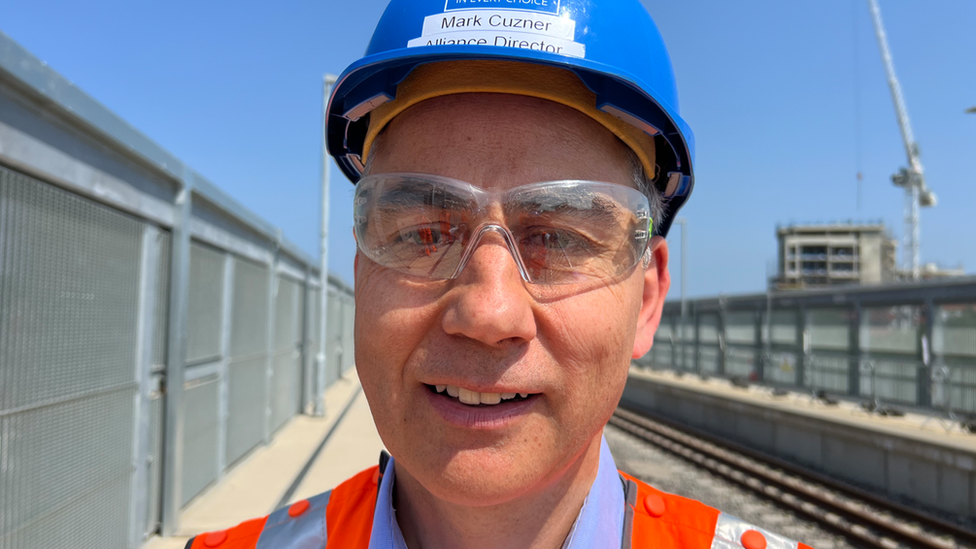
Mark Cuzner said the team at EWR are closely monitoring the movement of species to "compensation sites"
Mark Cuzner, director of the East West Rail Alliance, external, which is responsible for the delivery of the project, says the environmental impact on the existing ecology is "probably one of the biggest challenges" of the scheme.
"The railway did exist in the 50s and 60s, but the whole railway footprint became overgrown and a natural habitat for lots of rare species like bats and great crested newts," he says.
"We've got to protect those species and habitats and work very closely with the regulator to get the correct licenses in terms of how we carry out the work."
The alliance created more than 20 "compensation sites" alongside the railway months before work began, external to "translocate" ecology safely.
"We do a lot of surveys to identify where the habitats are living - and then we keep surveying through the life of the project and beyond the completion of the project to make sure those habitats are thriving and surviving," he adds.
"What we've seen so far is that all our compensation sites are being used by the various habitats and we've not seen any failures in those local populations.
"What we've learned will be taken forward for the later phases of EWR."
He said they were also working to protect local badger setts and creating more than 30 breeding sites for the mammals.
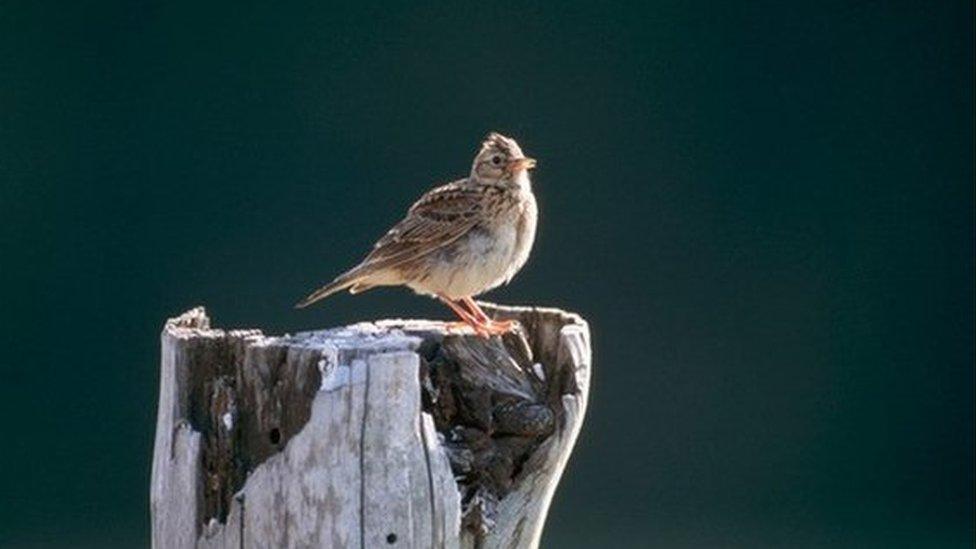
According to the RSPB, skylark numbers have fallen by as much as 75% in the UK in the past 40-50 years, mostly because of changes in farming
In its latest proposals, published in May, the East West Rail Company committed to a target of 10% biodiversity net gain across the whole project.
It said many of the sites have been "transformed from low diversity, arable land into purpose-built wildlife havens designed to benefit invertebrates, butterflies, birds, bats, reptiles and amphibians, otters and badgers".
Chief executive officer Beth West said: "We're doing everything we can to minimise the environmental impact that we're having, both in terms of construction and in the route itself.
"So we're not going through any ancient woodland. We're going to have a 10% biodiversity net gain, which means that any impact that we, have there will be 10% more than what we started with."

'It's a crying shame'
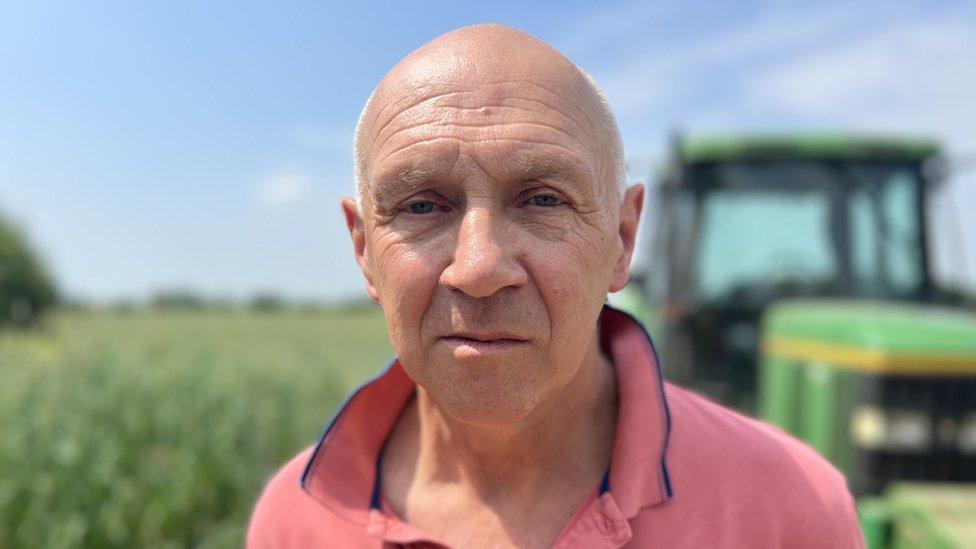
Tim Scott is a farmer and a trustee of the Countryside Regeneration Trust
When farmer Tim Scott's land at Comberton, Cambridgeshire, was acquired 23 years ago, it was a "blank canvas", he says.
"In those 23 years, we've put in miles of hedgerows, miles of grass margins - and it is teeming with wildlife."
It was among the top areas of the country for Red List revival of birds such as grey partridge, linnet, yellowhammer and corn bunting.
"The main fear here is the land is very narrow and the impact of the railway line on this Westfield farm would be enormous," he adds.
"It's okay putting a railway line and planting a few trees, but for species that like living in open farmland, that isn't going to work.
"Hundreds of volunteers over the years have done so much to improve the biodiversity and it will all be lost forever - it's a crying shame.
"It would appear EWR is totally ambivalent to the countryside in general. The project is ill thought-out and unpopular."
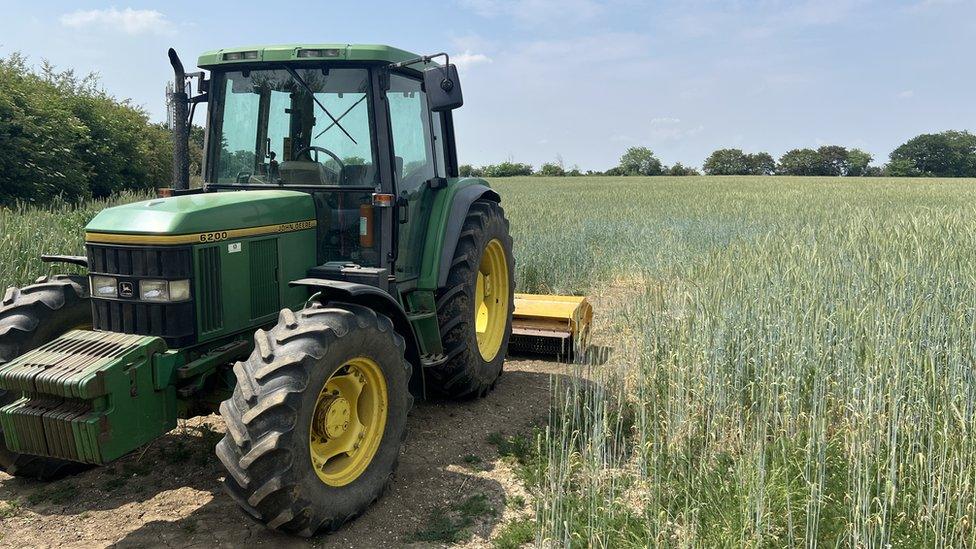
Mr Scott says EWR has been "ambivalent to the countryside in general"

Find BBC News: East of England on Facebook, external and Instagram, external. If you have a story suggestion email eastofenglandnews@bbc.co.uk or get in touch via WhatsApp on 0800 169 1830
Related topics
- Published13 June 2023
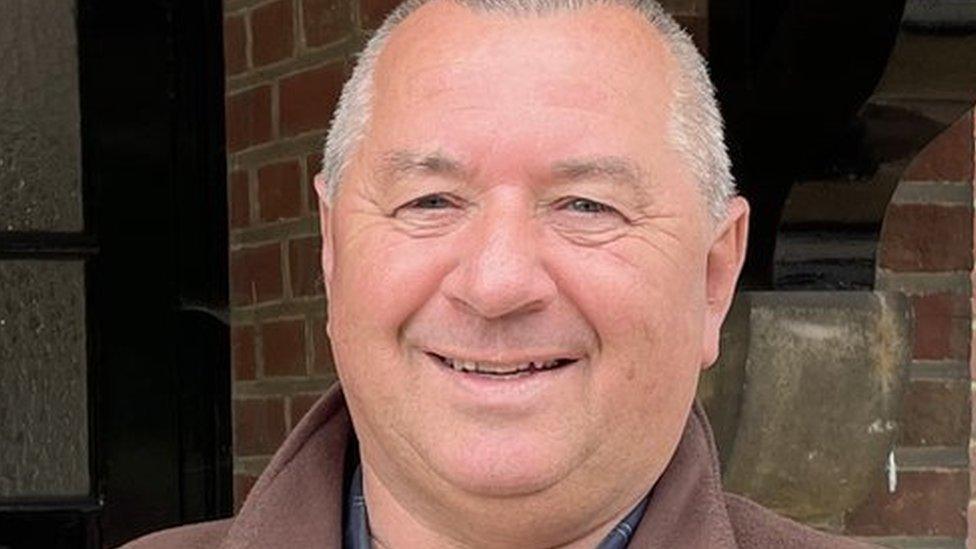
- Published7 June 2023
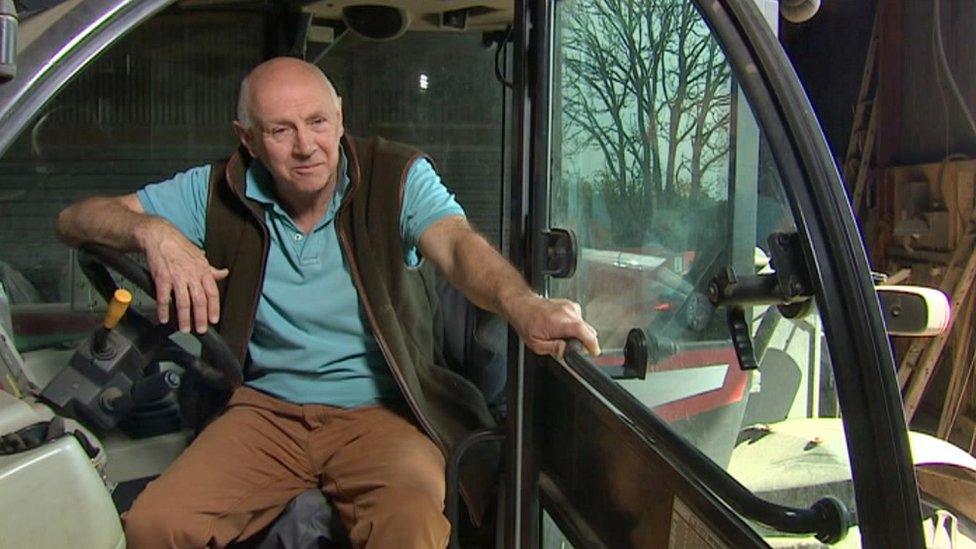
- Published26 May 2023
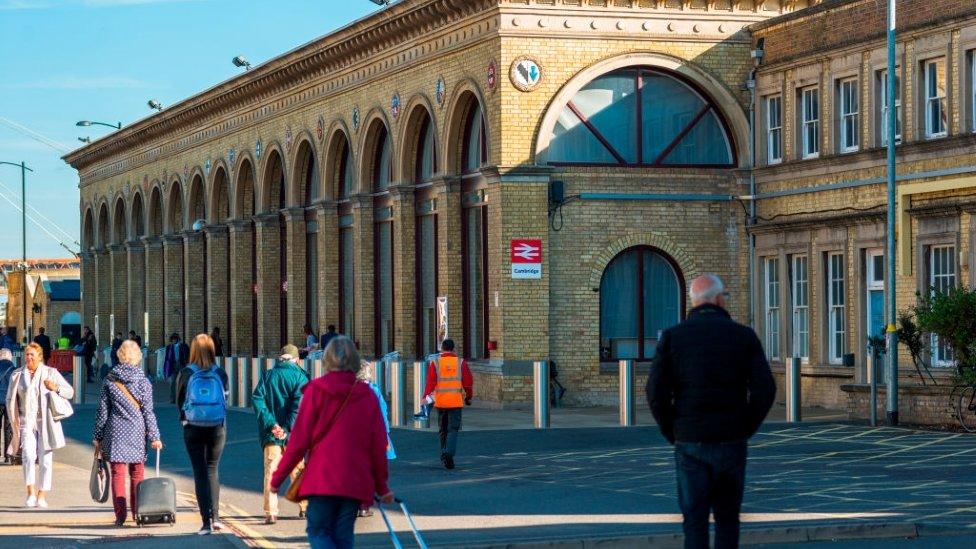
- Published13 April 2023

- Published18 March 2023
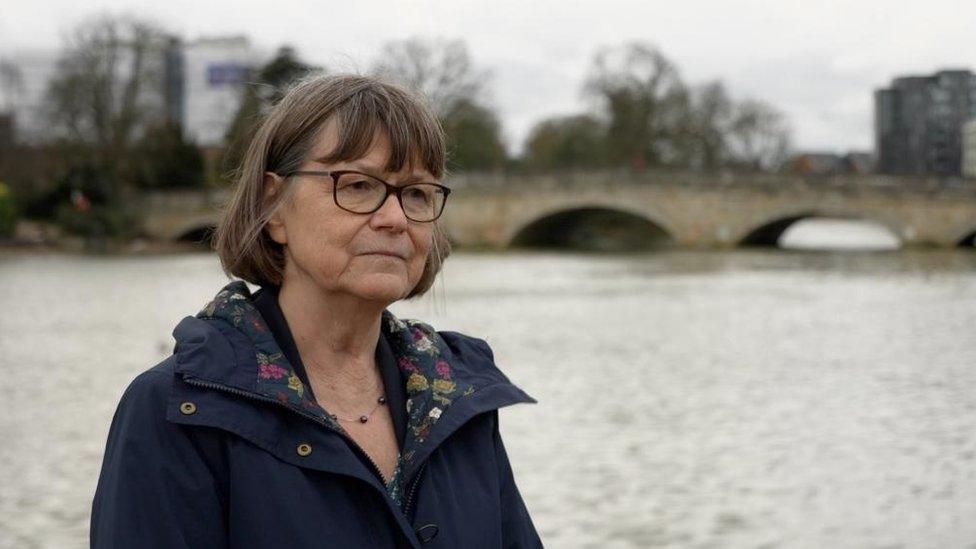
- Published20 February 2023
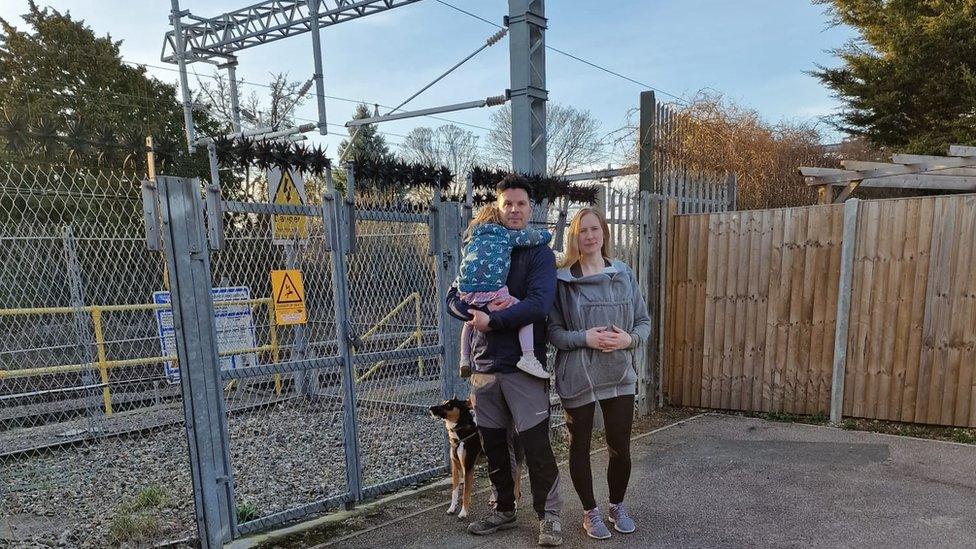
- Published6 September 2022
